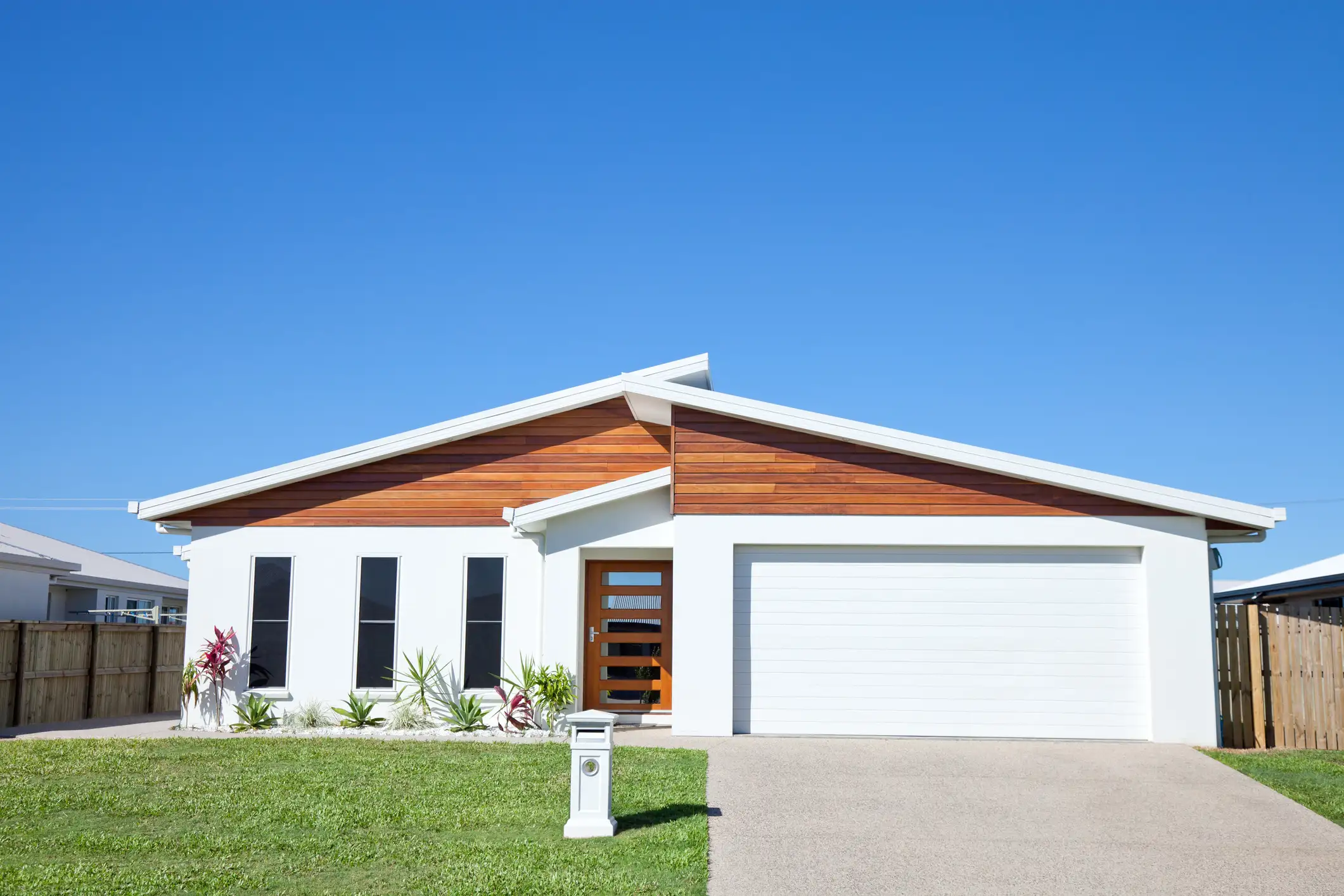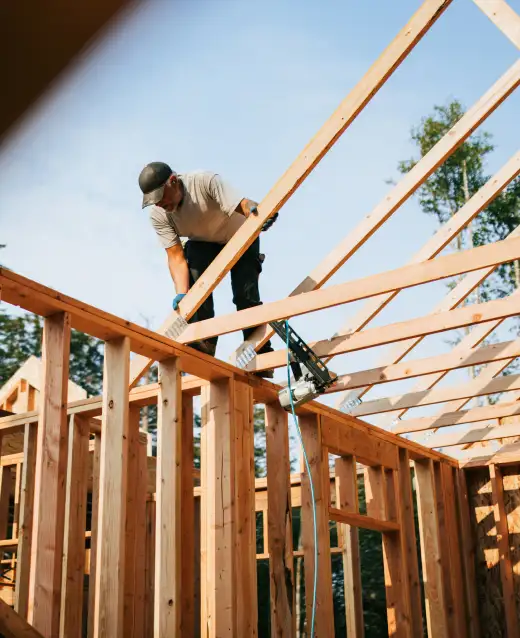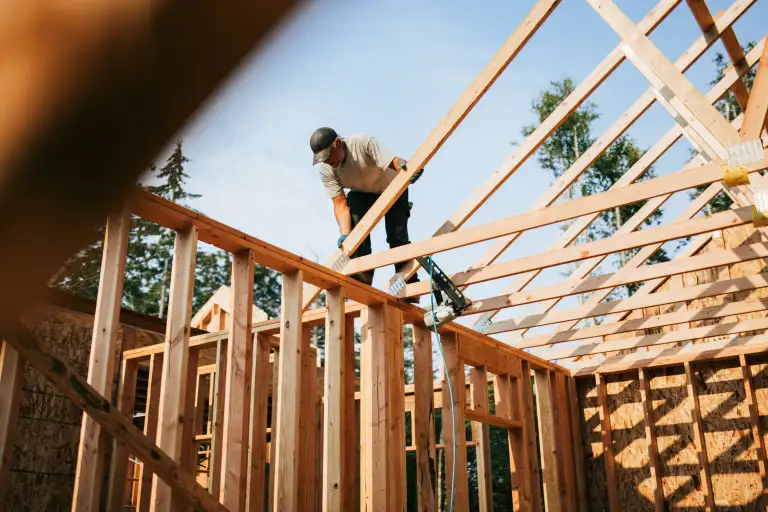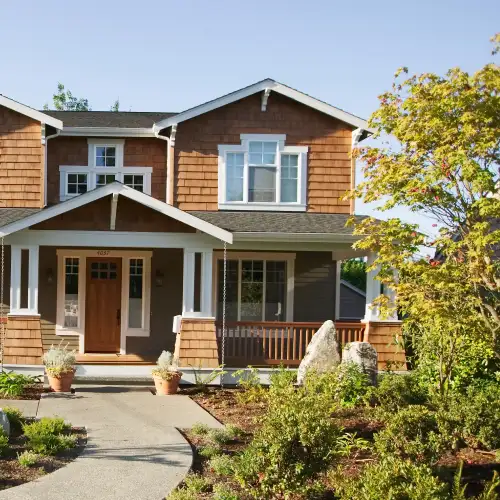How do construction loans work?
A construction loan, also known as a home building loan, isn’t like your typical mortgage. Rather than a single large payment at once, money is disbursed gradually as your house is developed. It's a “pay-as-you-build” plan that helps keep things on task, on time and on your terms.


Dispersing Funds
When major construction milestones are hit, like pouring the foundation or installing electrical, an inspector gives the green light and the next round of funds is paid out.
The best part? You typically only pay interest on what you’ve borrowed so far, keeping costs lower while construction is underway. And when your home is finally move-in ready, the loan transitions into a traditional mortgage.
The best part? You typically only pay interest on what you’ve borrowed so far, keeping costs lower while construction is underway.
Types of construction loans
Not all construction loans are the same, and finding the right one depends on your project and financial goals. Here’s a quick breakdown of the most common types to help you find the perfect fit.
Construction-to-permanent loan
This is an all-in-one solution. Construction to permanent loans cover both your construction costs and long-term mortgage in a single package. Once your home is complete, it automatically transitions into a standard mortgage—no extra paperwork, no second closing, no extra hassle. If you’re looking for a seamless process, this is the way to go.
Construction-only loan
A construction-only loan is a type of financing specifically designed for the construction phase of building a new home or other structure. Unlike traditional construction loans that roll into a long-term mortgage when the build is done, this one is strictly for covering the nuts and bolts—materials, labor and everything in between. It’s perfect if you want more financial flexibility while you build and plan to lock in a regular mortgage later.
Renovation loan
Love your home, but ready for an upgrade? A renovation loan is designed for transforming an existing property, bundling the home purchase (if needed) and renovation costs into one loan. The loan amount is typically based on the estimated value of your home after the renovations are completed, known as the "as-completed" value. Whether you’re expanding, modernizing or making a fixer-upper feel brand new, this type of loan is a good option if you want to improve your property without the need for a large upfront payment.
Owner-builder construction loan
For the hands-on builders out there, this specialized financing lets you act as your own general contractor. You can save big by managing the build yourself, but it also means taking on the responsibilities of hiring subcontractors, keeping the project on schedule and ensuring everything meets building codes. Because of the added risk, lenders typically require experience in construction before approving this option.
End loan
If you start with a construction-only loan, an end loan is what you’ll need once the build is complete. Oftentimes the end loan converts to a traditional mortgage, which pays off the construction loan, usually with fixed interest rates and longer repayment terms. This setup gives you predictable monthly payments and long-term financial stability. Some construction loans require you to refinance separately, so make sure you understand the terms.
Construction loan rates
When building your dream home, understanding how construction loan rates work can help you make smart financial moves and save money in the long run. Here are just a few things to keep in mind.
- Interest rates on construction loans are usually about 1% higher than traditional mortgage rates.
- Your credit score, down payment and lender all play a role in determining your rate. A higher score and bigger down payment can help you lock in a lower rate.
- Consider your rate options. Fixed rates offer stability, while variable rates can fluctuate, potentially saving or costing you more over time.
Pro TIp
If you can, go with a shorter loan term. Construction loans are short-term by nature, but choosing the shortest term possible can lead to even better rates.
Construction loan requirements
It takes a truly unique vision to bring the perfect home to life. But you’ll need more than that if you want to land a construction loan. So, to help you check all the right boxes, we’ve outlined some of the most important factors that could impact your lender’s decision.
- Good credit score: Most lenders look for a score of at least 620, but the higher your score, the better your chances of approval—and the better your loan terms.
- Low debt-to-income ratio (DTI): Lenders like to see a DTI of 50% or lower to make sure you can comfortably handle loan payments.
- Down payment: Plan to put down 20% to 25% to show you’re financially invested in the project. A bigger down payment can also help you score better loan terms.
- Approved builder: Your lender needs to approve the builder, ensuring they’re experienced, licensed and insured.
- Detailed construction plan: Blueprints, budget and payment schedule should all be mapped out to show the lender your project is solid and ready to go.
How to qualify for a construction loan
Securing a construction loan might seem like a mountain to climb, but if you take the right steps, it’s easier than you might think. Lenders aren’t just looking at your finances—they want to see a rock-solid plan that proves your project is set up for success. The more prepared you are, the smoother the process. So, let’s break it down step by step and get you from application to approval with confidence.
- Get pre-approved first to see how much you can borrow. Lenders will check your credit, income and overall finances. A higher credit score can mean better loan terms and lower interest rates.
- Not all lenders handle construction loans, so choose a lender that understands the ins and outs of construction financing.
- Lenders want to see a well-thought-out project. Be ready to provide blueprints, a detailed timeline, cost breakdowns and proof that your contractor is licensed and insured.
- Construction loans are riskier, so lenders set stricter requirements to qualify. You’ll typically need a credit score of over 620, a debt-to-income ratio under 50% and a down payment of 20-25%.
- Unlike traditional loans, construction loans are paid out in stages (draws) as the work progresses. Before each draw is approved, an inspector or appraiser will check that everything meets quality standards—keeping your project on track and your loan on point.
Pro TIp
Make sure to get pre-approval. This gives you a clear budget to work with, ensuring you don’t overcommit before locking in a loan.







